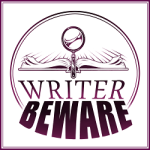Conversationally is a series of interviews with writers at various points in their careers about the craft and business of writing.

Pear Nuallak
Pear Nuallak is a London-based freelance writer whose work has appeared in The Toast. More of their writing will be published in the near future in Stone Telling, Lackington’s, and the forthcoming anthology The Sea Is Ours: Tales of Steampunk Southeast Asia.
As a writer, how would you describe your relationship with the publishing industry?
It depends on what’s meant by publishing industry, really, but in general I’d describe my relationship to the publishing industry as tenuous. This is because most of my energy as a writer is pretty focused on particular scenes, and I can just about keep up with names, figures, trends, and developments from that fairly small pool.
I roughly know the shape of but am largely mystified by traditional publishing houses, journals, and newspapers, but I’m mostly acquainted with, say, some major-yet-fairly-niche online publications (e.g. The Toast, various SFF zines) in the sense that I have submitted to them and am part of the readership/commentariat. I’m acquainted with editors of short story anthologies and have volunteered as an editor of a London-based online student magazine. All of those really seem worlds away from other corners of the industry.
It’s often said that the publishing industry is in a time of change. Would you agree with that? What changes have you seen or would you like to see?
Yes, I’d essentially agree with this, at least for SFF. There are two which stand out to me: changes in sources of funding and shifts in attitudes towards representation & diversity in fiction writing.
Nowadays, a bunch of individual writers, anthos, and zines engage in crowdfunding. This includes Patreon, Kickstarter, holding their own fund drives, and having a donation box/tip jar on their site. In principle, crowdfunding widens opportunities: if you have an idea, particularly an idea which is mild-to-moderately edgy, you could theoretically drum up the cash and launch it without having to jump through too many hoops. Occasionally, as in the case of Catherynne Valente’s Fairyland series, a crowdfunded online piece gets picked up by a traditional publisher and then becomes a more mainstream bestseller.
Since crowdfunding is largely the hustle of individual authors, relatively small presses, and individual editors of anthologies, I guess there’s an element of being the little guy: it seems noble but it’s pretty hard to get by without reliably deep pockets either side of you. It’s still mostly the major houses and their SFF imprints who’ve got money to throw about, who sell big and get read, but that’s really not indicative of quality.
There’s a similar underlying structure in issues of diverse representation. There are bursts of insight from individuals but the industry seems slow to understand that diverse books not only sell very well, they’re morally necessary. Some editors go through the motions of supporting diversity but will still only really buy pieces from white het cis American dudes where Generic Fantasy Westernlandia fights against barbaric, dark-skinned orcs from The East. When editors are questioned on a lack of diversity in their publications, their defence often comprises complaints that no diverse authors (or authors with knowledgeably written diverse stories) submit to them in the first place. I can definitely tell you we pick up on lots of clues about whether our work is welcome–I boarded the Nope Rocket when an editor referred to cultural appropriation as a mere “bugaboo,” for instance, and frown at the insistence that quality should trump diversity. It’s disheartening when editors pit them as opposites.
There have always been diverse authors saying all of the above. I guess now, where we’re able to relay and collate information much faster, ideas can gain traction far more quickly, becoming a movement. The change I’d like to see is for the industry as a whole to really listen to what’s been (and being!) said.
Do you have any advice for other writers looking to publish their work?
Keep doing and finishing stuff within some kind of structure, however loose (mine is to finish/submit a fiction piece at least

Cake made by Pear
once a month). Remember that writing is a separate act to submitting and getting published. Both take time.
Research your markets and read submissions guidelines carefully, formatting your cover letter and submission(s) accordingly. Don’t write self-pitying cover letters or argue with editors. You can have legitimate grievances, but airing them at editors won’t make them give you a platform and throw their money at you. You’d be surprised at how this escapes some writers…
Let people like or dislike your work as they please, and allow rejection to hit you hard. Have a good cry if you need to, then distract yourself. Surround yourself with supportive people, limiting contact (if possible) with those who gloat about rejection : acceptance ratios or sneer at other’s careers in comparison to their own–the business of writing is already competitive, your friends and colleagues are frequently your direct rivals, so you need people who can deal with it maturely.
Finally, remember your career isn’t a race. We can’t all be Helen Oyeyemi. The good thing about writing, unlike several other forms of art, is that words on a page can wait. You can always learn and improve. Persist.
If you are an author, and you’d like to be interviewed for Conversationally, contact me at connemarajames at gmail.com.










 year if you splurge for the full year’s membership. The price might not be right for everyone, but Duotrope has a searchable database of publishers and literary magazines that can help you find the right place for your work. It lets you know who’s open for submissions, and for how long, and tells you the average response time for each publication, based on user feedback. You can organize your submissions and keep track of them, which is a useful tool for the disorganized among us, such as myself. If you’re curious, give the free trial a try to see if it works for you. Note: As Duotrope skews toward the literary, you might also want to try
year if you splurge for the full year’s membership. The price might not be right for everyone, but Duotrope has a searchable database of publishers and literary magazines that can help you find the right place for your work. It lets you know who’s open for submissions, and for how long, and tells you the average response time for each publication, based on user feedback. You can organize your submissions and keep track of them, which is a useful tool for the disorganized among us, such as myself. If you’re curious, give the free trial a try to see if it works for you. Note: As Duotrope skews toward the literary, you might also want to try 
 d educational. You can post your work for criticism, ask about that confusing agent response you received, find a freelance job, or chat about Monty Python. Everyone’s welcome to join: novice or pro, no matter your genre of choice.
d educational. You can post your work for criticism, ask about that confusing agent response you received, find a freelance job, or chat about Monty Python. Everyone’s welcome to join: novice or pro, no matter your genre of choice. and are willing to put in a great deal of work and take risks to fulfill their dreams. Wherever you find desire like this, there’s going to be someone who wants to exploit it.
and are willing to put in a great deal of work and take risks to fulfill their dreams. Wherever you find desire like this, there’s going to be someone who wants to exploit it. 